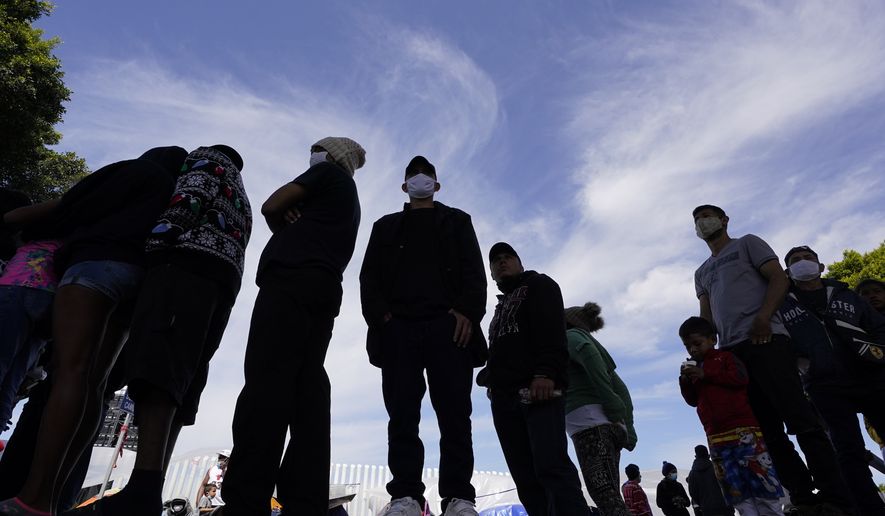New rules implemented by Immigration and Customs Enforcement under the Biden administration are cutting into the agency’s arrests of migrants, leaving dangerous people on the streets, a senior official testified under oath in court documents revealed last week.
The testimony of Albert Carter, who was acting director of the Phoenix field office for ICE for most of President Biden’s young tenure, challenges the claims of Homeland Security Secretary Alejandro Mayorkas and other political appointees who say the agency’s limited resources mean they must retrench on whom they arrest and try to deport.
Mr. Carter said resources have remained the same since the Trump administration, but the number of arrests and detainer requests have dropped. And he said the reason has to be the new restrictions on arrests and deportations implemented in February at Mr. Mayorkas’ direction.
“I can’t think of anything else,” he said.
Mr. Carter, who relinquished the acting director’s job and has returned to his role as deputy director, said cutting arrests and detainers will “absolutely” leave communities less safe.
The revelations came in a deposition Mr. Carter gave in a case brought by Arizona Attorney General Mark Brnovich, who is challenging the February directive as illegal. He says it was promulgated arbitrarily and without good reason.
Mr. Brnovich, a Republican, said in his own court filing that Mr. Mayorkas’ claims of being stretched too thin financially to keep up the prior pace of arrests and deportations is “demonstrably pretextual.”
“Nowhere in the record did [the Department of Homeland Security] actually analyze resource constraints on removals, how the priority categories relate to those constraints or consider alternatives,” he argued.
Under the Trump administration, more than 90% of deportees had criminal convictions or pending charges.
But immigrant-rights activists argue many of those aren’t serious enough to warrant being handled by ICE.
They have long sought severe restrictions on the agency’s activities, and Mr. Biden in the presidential campaign promised to deliver.
On Inauguration Day, Homeland Security tried to create a near-total deportation pause, but that was blocked by a federal judge in Texas. In February, Mr. Mayorkas directed acting ICE chief Tae Johnson to issue new rules limiting who would be considered a target for deportation.
“We are focused on the greatest threats to public safety because we do not have limited resources, and so our focus is on three priorities, national security, public safety and border security,” the secretary told Congress this month. “And we’re delivering consequences, as well we should, to most effectively serve those priorities. It’s qualitative, not quantitative.”
Mr. Mayorkas says the February rules are “interim” and he’s working on a final set of rules.
Data submitted to the court this week also gave an interesting look at how the current system is working.
Under the terms used by the Biden team, there are three automatic priority categories of migrants: Those deemed national security risks, very serious criminals whose convictions rise to a certain level, and recent border crossers. ICE says there’s also a category that encompasses the rest of the migrant population — but anyone who doesn’t meet the three main categories must be submitted for approval before being arrested.
Between Feb. 22 and April 15, ICE’s Phoenix field office had 17 requests for approval. Ten were approved and seven were denied, though three of those seven were later reversed and “converted to priority,” according to a chart submitted in court.
• Stephen Dinan can be reached at sdinan@washingtontimes.com.




Please read our comment policy before commenting.